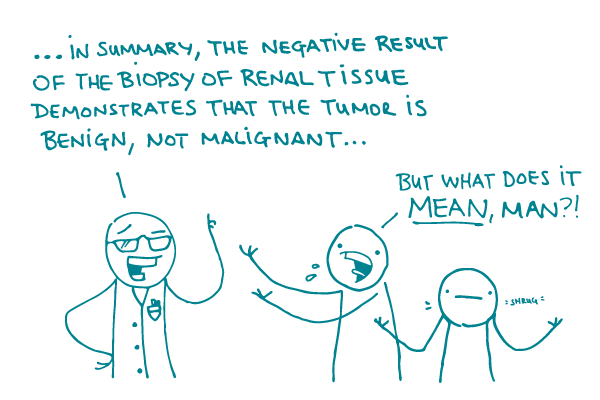
Cancer is a confusing, scary subject — so it’s no surprise that it’s also a tricky one to write about.
As you know, dear readers, communicating about cancer involves a lot of complex terminology. And when people are under a lot of stress (like when they’re worried about cancer), their reading comprehension drops regardless of their usual level of health literacy.
So before you use a complex cancer term, always ask yourself if there’s a simpler, more direct replacement that’s still medically accurate. For example:
“If the cancer is metastatic, you may need different treatment.” Instead of using “metastatic,” can you say, “If the cancer has spread”?
“We will run tests to find out if the tumor is benign or malignant.” Try to avoid words like “benign” and “malignant” — and even the confusing word “tumor” when possible. Instead, you could just say, “We will run tests to find out if you have cancer.”
“You may need a biopsy of the prostate tissue.” Leave out the jargon word “tissue” and say where it’s coming from (in this case, the prostate).
“Biopsy” is trickier. With some audiences, you could simply call it a test. But if you’re talking to people who may need repeated biopsies, teach the term instead. Add a sentence like, “During the biopsy, a doctor will take a small sample of your liver to test it for cancer.”
Keep in mind that you can’t always use these simpler substitutions. Depending on your audience and goals, you may need to use more complex terms. That’s okay, as long as you explain them in plain language.
The bottom line: When you’re writing about cancer, avoid jargon when you can — and explain important terms in plain language when you need to.
Browse recent posts